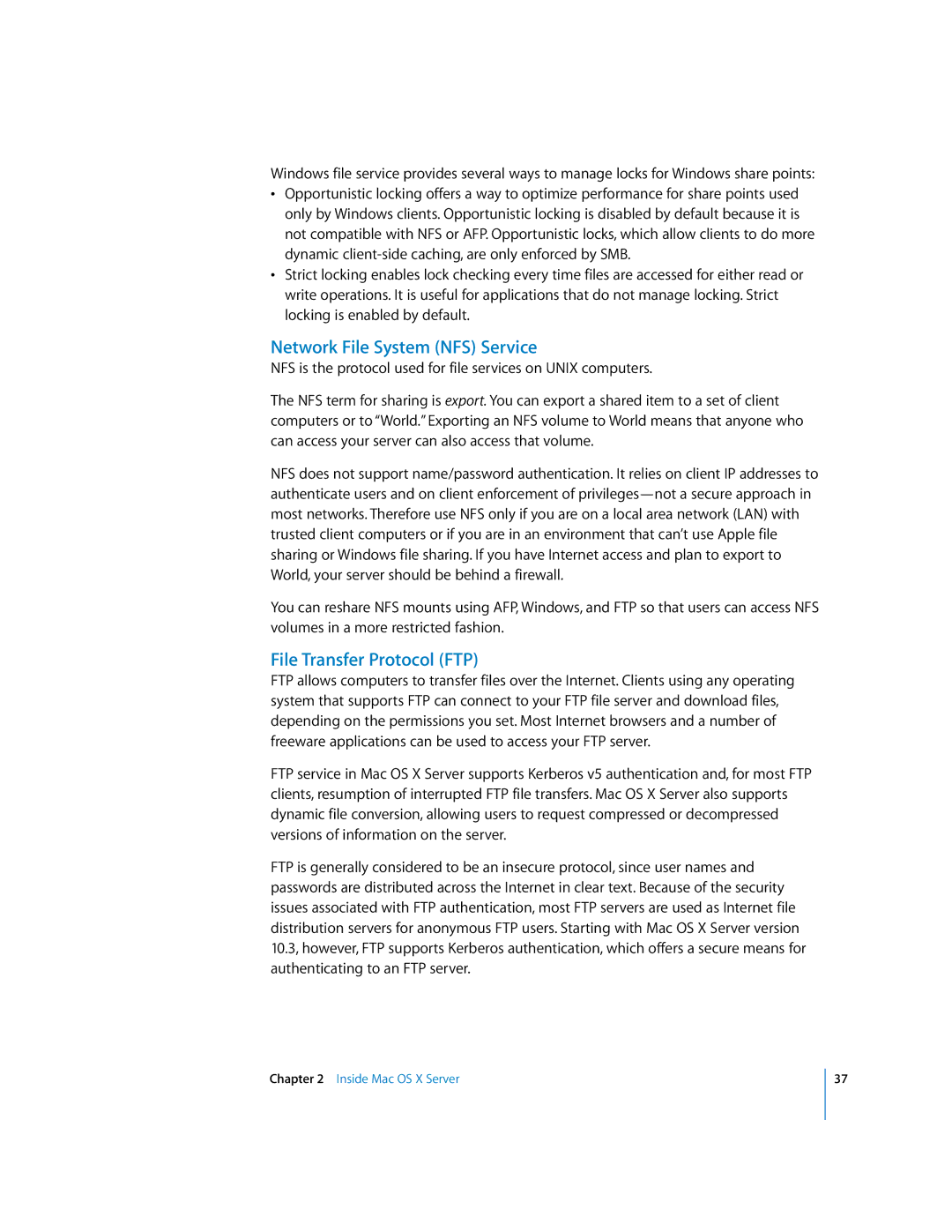
Windows file service provides several ways to manage locks for Windows share points:
•Opportunistic locking offers a way to optimize performance for share points used only by Windows clients. Opportunistic locking is disabled by default because it is not compatible with NFS or AFP. Opportunistic locks, which allow clients to do more dynamic
•Strict locking enables lock checking every time files are accessed for either read or write operations. It is useful for applications that do not manage locking. Strict locking is enabled by default.
Network File System (NFS) Service
NFS is the protocol used for file services on UNIX computers.
The NFS term for sharing is export. You can export a shared item to a set of client computers or to “World.” Exporting an NFS volume to World means that anyone who can access your server can also access that volume.
NFS does not support name/password authentication. It relies on client IP addresses to authenticate users and on client enforcement of
You can reshare NFS mounts using AFP, Windows, and FTP so that users can access NFS volumes in a more restricted fashion.
File Transfer Protocol (FTP)
FTP allows computers to transfer files over the Internet. Clients using any operating system that supports FTP can connect to your FTP file server and download files, depending on the permissions you set. Most Internet browsers and a number of freeware applications can be used to access your FTP server.
FTP service in Mac OS X Server supports Kerberos v5 authentication and, for most FTP clients, resumption of interrupted FTP file transfers. Mac OS X Server also supports dynamic file conversion, allowing users to request compressed or decompressed versions of information on the server.
FTP is generally considered to be an insecure protocol, since user names and passwords are distributed across the Internet in clear text. Because of the security issues associated with FTP authentication, most FTP servers are used as Internet file distribution servers for anonymous FTP users. Starting with Mac OS X Server version 10.3, however, FTP supports Kerberos authentication, which offers a secure means for authenticating to an FTP server.
Chapter 2 Inside Mac OS X Server
37
